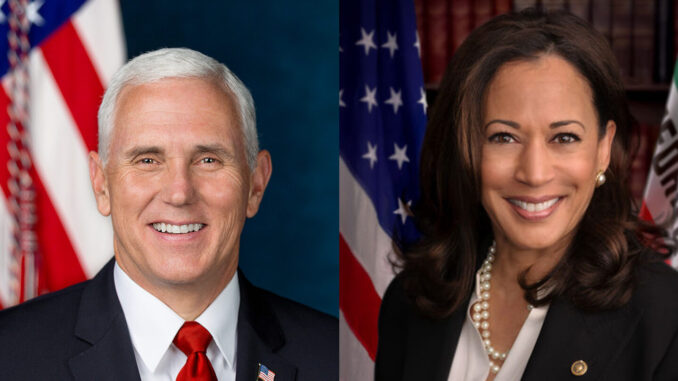
Kamala Harris has clawed her way up the U.S. political ladder. But as the daughter of immigrant scholars, Harris’ distinctly American success story is largely missing from the Democratic Party’s portrayal of African Americans as victims of systemic racism and what it calls Republican campaigns to limit black voters’ access to the polls.
Harris, the California senator-turned-Democratic-vice-presidential-nominee, graduated from Howard University and earned a law degree from the University of California, Hastings College of the Law in San Francisco. She rose from deputy district attorney in the county that stretches southward from Berkeley and Oakland, to San Francisco district attorney. Then she won a California attorney general race before her election to the U.S. Senate.
The hard-working daughter of two hard-working and highly accomplished people—one from India and the other from Jamaica—will debate the sitting Vice President of the United States on Wednesday for a shot at his job. She is the first African American woman to reach that plateau and the first Indian-American of either sex.
Harris has seldom been challenged on the contradiction between her accomplishments and the Democratic Party platform’s condemnation of “a persistent, pernicious racial wealth gap that holds millions of Americans back.”
She also hasn’t faced a Republican opponent with any rhetorical firepower: She won her U.S. Senate seat just four years ago in a run-off against another Democrat, a product of California’s “jungle primary” system in which no Republican managed to place second.
In Vice President Mike Pence she will likely find a calm, steady politician with practiced lines defending President Donald Trump. Shielded behind a Plexiglas barrier to prevent transmission of Covid-19, she might for the first time be asked to explain how she has reached the finals of a contest to lead a nation that holds minorities down.
Harris has tried to walk this fine line before, but only against other Democrats. The most widely watched moment of her two-decade career in politics was her takedown of Joe Biden—the 47-year government veteran who tapped her as his running mate—in a June 2019 debate.
The former vice president was the front-runner. Harris, feisty and aggressive, saw his 1970s stance on school busing—he opposed it—as her chance to distinguish herself. She ripped into him with her recollection of “a little girl who was a part of the second class to integrate her public schools, and she was bused to school every day.” After a dramatic pause, she added: “And that little girl was me.”
Biden, who had been looking down as she spoke, lifted his head to make eye contact with Harris. It appeared to TV pundits afterward that he was angry at the dig. Biden accused the senator of misrepresenting his position. His campaign was livid.
Having landed her punch, Harris showed restraint. She may have left the door open to a running-mate’s peace by not actually calling Biden a racist.
Harris is a woman, biracial and a double minority. Her late mother emigrated from India, earned a doctorate in endocrinology and became a breast cancer researcher. Her 82-year-old father came from Jamaica, earned a doctorate in economics and retired as a Stanford University professor.
On one hand, Harris could pound Pence with their stories—two people who arrived with little and rose to positions of prominence—and claim they disproved Trump’s portrayal of immigrants as on the take and eager to fleece hard-working American taxpayers for jobs and benefits.
On the other, Pence could congratulate her for bootstrapping her way to success and insist Trump has done more than his African American predecessor to equip more people of color to follow in her footsteps.
Either way Harris will bring a considerable constituency along with her for 90 minutes: American women, among whom Biden leads Trump by a staggering 34 percentage points, according to a new CNN poll.
“I’m very impressed with her,” says Larry Sabato, a professor of political science at the University of Virginia and longtime director of its Center for Politics. “There’s no question that Trump is losing the women’s vote, and losing it badly. Harris can really stick it to him.”
Sabato also advises Harris to have the last laugh by using her parents as Exhibits A and B.
“The president wants us to think that immigrants are threats, that they don’t add value, that they don’t contribute—but of course they do,” Sabato says. “She should drive this point home.”
(Edited by David Martosko and Allison Elyse Gualtieri)
The post Will the Real Kamala Harris Please Stand Up? appeared first on Zenger News.
